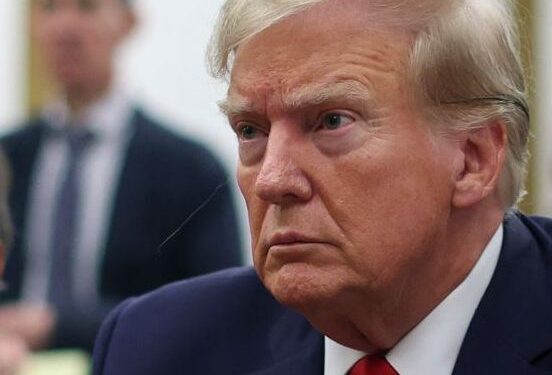President-elect Donald Trump has ignited global backlash with his threat to impose sweeping tariffs on imports from Mexico, Canada, and China. In a series of social media posts late Monday, Trump announced plans for tariffs as high as 25% on Canada and Mexico, and 10% on China, citing illegal immigration, drug smuggling, and fentanyl trafficking as his reasons.
Trump’s remarks drew swift criticism. China warned that “no one will win a trade war,” while Mexican President Claudia Sheinbaum rejected the tariffs as “unacceptable,” asserting that migration and drug issues require cooperation, not threats. Canada’s Prime Minister Justin Trudeau held a “productive” discussion with Trump, according to a government source, but no details were provided.
The proposed tariffs have raised concerns about potential disruptions to global trade, heightened tensions with China, and strained relations with the US’s largest neighbors. Stock markets experienced volatility as investors grappled with the implications of Trump’s statements, according to Fawad Razaqzada of City Index.
The posts reflect Trump’s promise to leverage US economic power on issues beyond trade, using tariffs to address illegal immigration and drug-related issues. Trump’s rhetoric signals a return to the contentious and unilateral policymaking style of his first term, where he frequently surprised allies and adversaries with abrupt announcements on social media.
In preparation for his January 2025 inauguration, Trump named key figures to his economic team, including Jamieson Greer as Trade Representative and Kevin Hassett as head of the White House National Economic Council. Both served in his first administration and were central to his previous trade policies.
Trump’s tariff threats follow his first-term trade war with China, where he imposed heavy duties on Chinese goods, prompting retaliatory measures that hit American farmers particularly hard. Critics argue such tariffs harm US consumers and businesses by raising prices and fueling inflation.
Mexico’s Sheinbaum countered Trump’s claims, emphasizing that the narcotics trade is driven by demand within the US. She also highlighted the role of US-made weapons in fueling violence in Mexico. “Seventy percent of illegal weapons seized in Mexico come from your country,” she noted, urging a more collaborative approach to shared challenges.
Economists and trade experts are divided over whether Trump’s threats are genuine or part of a negotiation tactic. William Reinsch of the Center for Strategic and International Studies suggested Trump’s strategy might be “threaten and then negotiate.”
With his incoming Commerce Secretary-designate Howard Lutnick, a known China hawk, Trump’s proposed trade policies could lead to renewed economic confrontations with major global players, further testing international relations and economic stability.
























